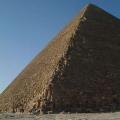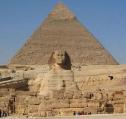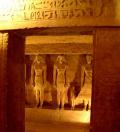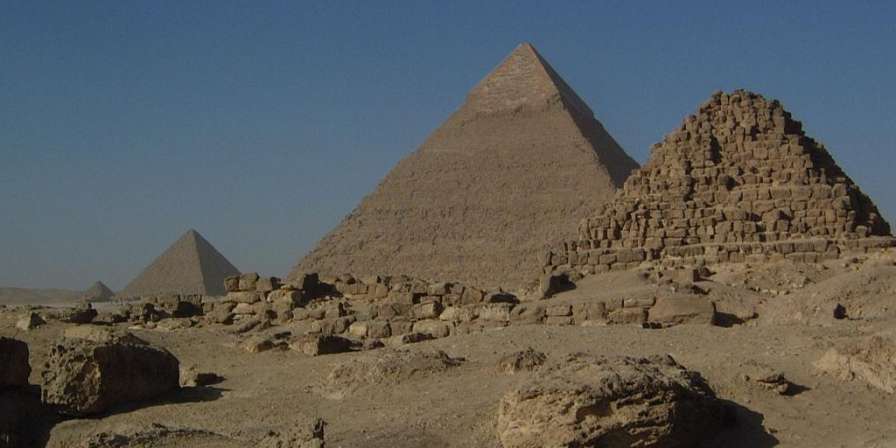






A less-academic page is interesting and has lots of links to other material about Egypt, but it's a "personal home page" so may be less reliable, and may move or disappear.

We went to see the pyramids not especially early on a Saturday morning, in the relatively cool tourist season (February). So where are all the tourists?

| Ah! There's one, near where the edge of the Great Pyramid meets the ground. This is the biggest pyramid, built in about 2600 B.C. Though long-lasting, you can see that even it is gradually crumbling. (Click on this and the following pictures to enlarge them.) |

|
| Kephren's pyramid is slightly smaller than Cheops', but still has, near the top, part of the original covering of smooth limestone which must once have made the Pyramids an even more striking sight than they are today. | 
|
| The "traditional" shot of the ruined Sphinx, included here only to point out that it makes the Sphinx look much bigger, relative to the Pyramids, than it really is. Kephren's pyramid in the background is more than 100 metres away | 
|
| One of the reasons that the Giza landscape is not swamped by tourists is that it is a very large site. There are many pyramids (though only ten are built of stone throughout) spread over a large area (tens of square kilometers), and within this area are other interesting tombs, mostly underground. This tomb is from the same period (fourth dynasty) as the Great Pyramid. | 
|
| The design of pyramids evolved from unsuccessful beginnings. Early attempts used stone only on the outside, surrounding a rubble core. Such pyramids were not durable. | 
|
| This is the tomb under one of the collapsed pyramids, still in good condition after about 4500 years and the partial collapse of the pyramid above it. | 
|
| The pyramid of Zoser, the first of the all-stone pyramids, built before 2600 BC. | 
|
|
By the way, all the Egyptian names above have different versions in English -
for example, Cheops and Khufu refer to the same person. If you'd like
more information about the history,
there are concise
chronologies here,
and here.
A less-academic page is interesting and has lots of links to other material about Egypt, but it's a "personal home page" so may be less reliable, and may move or disappear. |
|